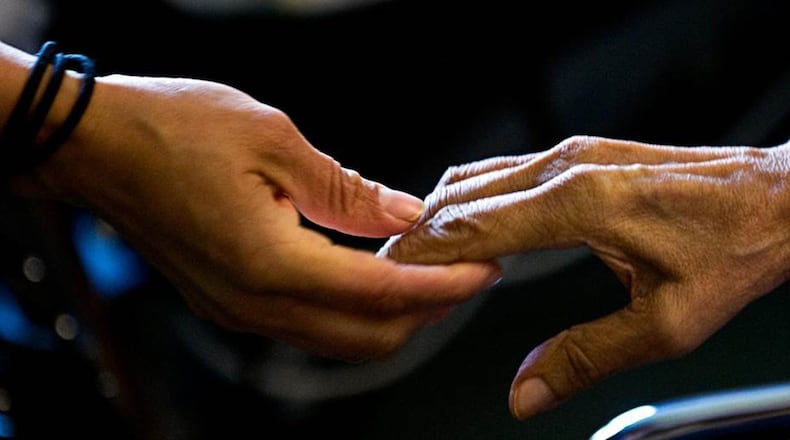Over half of Black and Native Americans in the survey reported feeling that they don’t have access to providers who understand their ethnic and racial backgrounds.
Executive director of the Alzheimer’s Association of Miami Valley Eric VanVlymen said the goal of the survey is to inform and implement changes based on their data to better serve patients and their families.
“I think it’s bringing the awareness to the issue, but it’s also having the data we need to lead ourselves and others to making sure that everyone regardless of race, gender, sexual preference, whatever it is, that everyone has a chance to get help,” he said.
Patients suffering from memory issues or forms of dementia like alzheimer’s lose their short-term memory and often revert to a point in their past but how far back in the past they go varies for each person. This makes it important to understand their background and life experiences so providers can meet the patients where they are.
“I think it’s just taking the time to understand that there are different ways that people view medicine, help, there’s just different cultural aspects that might be useful to help you provide treatment for somebody,” said VanVlymen.
Tashia Bradley, executive vice president and chief innovations officer for Wilberforce University, has helped colleges and universities develop strategies to diversify their campuses including equity for students, faculty, and staff but can be transferred to the health care profession.
“If you don’t understand the person that you’re interacting with and their family, then you don’t know how to position that person to have the best experience that they can have under the circumstances,” she said.
The majority of Black, Hispanic and Native Americans surveyed felt that racism was a barrier preventing them accessing health care, they are also twice as likely to be impacted by dementia and Alzheimer’s Disease VanVlymen said.
Over half of Black Americans surveyed were the least interested in clinical research trials to prevent or slow the progression of Alzheimer’s disease due to long standing distrust in health care providers. According to the study, 69% said they didn’t want to be a “guinea pig” for medical research.
“African Americans and Black people have been guinea pigs for the medical field. So when you think about sterilization projects that happened on Black women’s bodies, think about of course the Tuskegee experiments, when you think about Henrietta Lacks and how her cells were taken without her permission and used for good, but again without her permission. There’s all of this history and the story around how Black bodies are used to manage medical technology,” said Bradley.
In order to move forward Bradley said health care providers need to acknowledge the faults of the past, a focus on producing more Black and African American physicians, and an examination of what is taught in medical schools. “In order to revamp or create trust you have to first acknowledge that there’s a serious problem and then you have to demonstrate, and I think it’s going to take time,” she said.
The Alzheimer’s Association of Miami Valley is working to create community forums in West Dayton to identify the needs and concerns of those that are underserved to combat cultural incompetence. They are also preparing local and national partnerships with organizations including the Thurgood Marshall Foundation and Central state University to peak the interest of students interested in science and becoming physicians to engage in conversations with people from Non-white racial groups about Alzheimer’s in the hopes of making a difference in those communities.
About the Author

